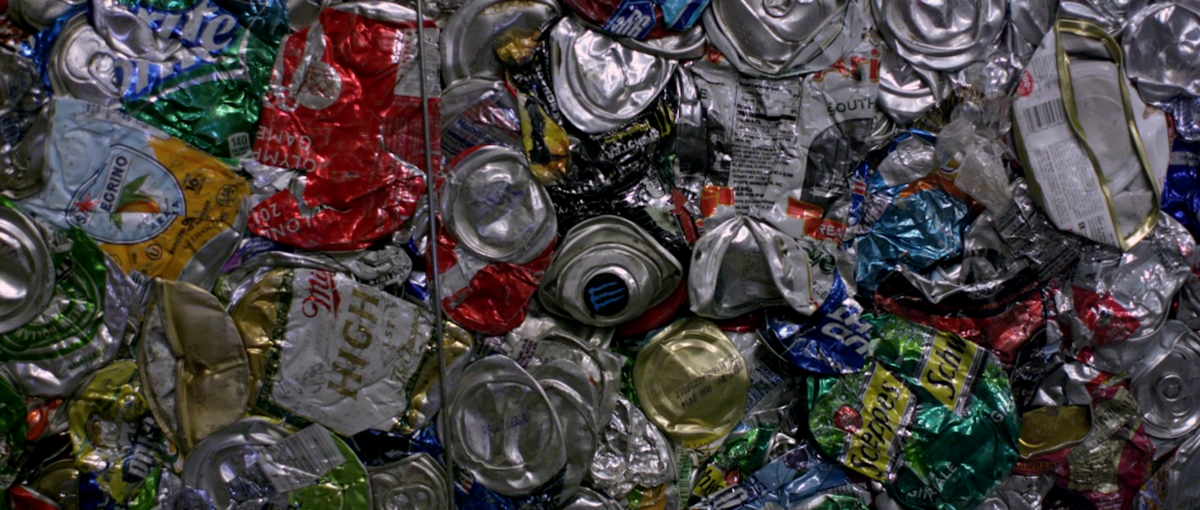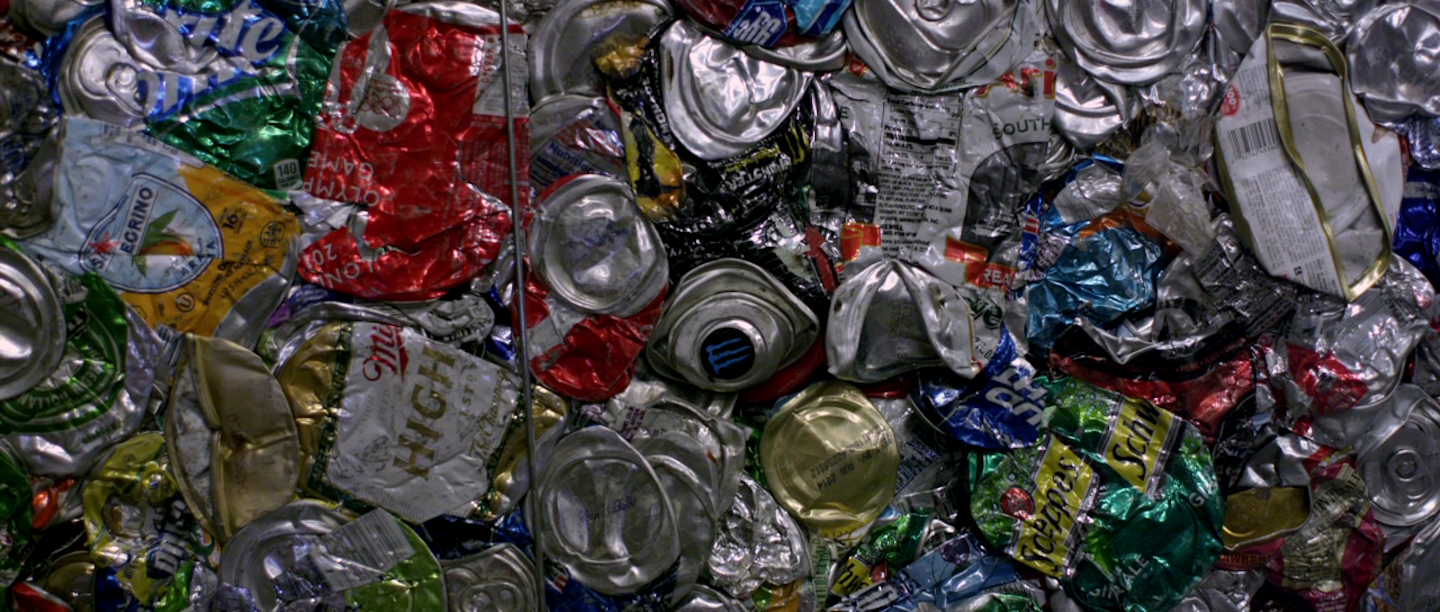e-flux presents Ecology After Nature: Industries, Communities, and Environmental Memory Visualizing the Anthropocene: Aesthetics and Politics
Online discussion with T.J. Demos, Kodwo Eshun, Toby Lee, Sasha Litvintseva, Anjalika Sagar, Susana de Sousa Dias, and Lukas Brasiskis
Date
Thursday, October 1, 2020 at 1pm EST
Join us on e-flux Video & Film Thursday, October 1, 2020 at 1pm EST for Visualizing the Anthropocene: Aesthetics and Politics, an online discussion with T.J. Demos, Toby Lee, Sasha Litvintseva, Susana de Sousa Dias, and The Otolith Group’s Kodwo Eshun and Anjalika Sagar, moderated by Lukas Brasiskis.
Visualizing the Anthropocene: Aesthetics and Politics is the first of two discussions in the ongoing online series Ecology After Nature: Industries, Communities, and Environmental Memory programmed by Lukas Brasiskis, which features 22 films to be screened over six thematic chapters between August 14 through November 8, 2020 (currently in Part Four).
We have entered a new geological epoch, when human impact has damaged the Earth’s biological systems to the point that mass extinction, of human and nonhuman life, is now a real possibility. Anthropocene is the name given by scientists to this time marked by human intervention primarily characteristic of the burning of fossil fuels, carrying out nuclear tests. and extracting resources of all sorts. Although the epoch of Anthropocene is only 300 years old, its effects extend across locations as well as acquire varying capitalogenic dimensions. Many moving image artists have recently attempted to visualize this ecological crisis—its causes and effects. Their task however has proved to be complicated, as T.J. Demos and Nicholas Mirzoeff, among others, have pointed out. The causes and effects across the planet are very uneven, requiring critical thought to decolonize the Anthropocene discourse itself and, subsequently, rethink artistic strategies.
In this discussion with art historian T.J. Demos and moving-image artists Toby Lee, Sasha Litvintseva, Susana de Sousa Dias, and The Otolith Group’s Kodwo Eshun and Anjalika Sagar, we will talk about the films screened so far as part of Ecology After Nature, and ask: What can art do about the Anthropocene? How can films approach industrial and extractive pasts and presents? How do they avoid the temptation to beautify the ecological disaster as past sublime representations have done? How to represent climate change inseparably from social and climate justice?—among other questions and themes moderated by Lukas Brasiskis.
The discussion will be livestreamed on this page, with audience Q&A open via chat.
Lukas Brasiskis is a film and media researcher and curator, currently a PhD candidate at New York University in the Department of Cinema Studies, and an adjunct professor at NYU and CUNY/Brooklyn College. His interests include eco-media, the politics and aesthetics of the world cinema, and intersections between moving-image cultures and the contemporary art world. Brasiskis’ texts have been published in both academic and non-academic media, and he has curated a number of screening programs, Including From Matter to Data: Ecology of Infrastructures (with Inga Lace, Post MoMa, New York), Environmental Memories in East-Central European Art (Alternative Film/Video Festival, Belgrade), Landscape to be Experienced and to be Read: Time, Ecology, Politics on the work of filmmaker James Benning (CAC, Vilnius), Mermaid with The Movie Camera (Spectacle Theater, New York), a program of experimental films Human, Material, Machine (with Leo Goldsmith, CAC, Vilnius, Lithuania), Baltic Poetic Documentary as Ethnographic Cinema (NYU, New York), Welcome to the Anthropocene (CCAMP, Lithuania), and a retrospective of the films of Nathaniel Dorsky (CAC, Vilnius) among others.
T.J. Demos is an award-winning writer on contemporary art, global politics, and ecology. He is Professor in the Department of the History of Art and Visual Culture, at University of California, Santa Cruz, and founder and director of its Center for Creative Ecologies. He writes widely on the intersection of contemporary art, global politics, and ecology, and his essays have appeared in magazines, journals, and catalogues worldwide. His published work centers broadly on the conjunction of art and politics, examining the ability of artistic practice to invent innovative and experimental strategies that challenge dominant social, political, and economic conventions. Demos is the author of numerous books, including Beyond the World’s End: Arts of Living at the Crossing (Duke University Press, 2020), Against the Anthropocene: Visual Culture and Environment Today (Sternberg Press, 2017); Decolonizing Nature: Contemporary Art and the Politics of Ecology (Sternberg Press, 2016); The Migrant Image: The Art and Politics of Documentary during Global Crisis (Duke University Press, 2013)—winner of the College Art Association’s 2014 Frank Jewett Mather Award—and Return to the Postcolony: Spectres of Colonialism in Contemporary Art (Sternberg Press, 2013). Earlier books include The Exiles of Marcel Duchamp (MIT Press, 2007), and Dara Birnbaum: Technology/Transformation: Wonder Woman (MIT Press/Afterall Books, 2010). Demos co-curated Rights of Nature: Art and Ecology in the Americas at Nottingham Contemporary in January 2015, and organized Specters: A Ciné-Politics of Haunting, at the Reina Sofia Museum in Madrid in 2014. He has served on the Art Journal editorial board (2004-08), and currently sits on the editorial board of Third Text, and on the advisory board of Grey Room.
Toby Lee is an artist, anthropologist, and Assistant Professor of Cinema Studies at NYU’s Tisch School of the Arts. She works across film, video, drawing, and text, and her work has been been exhibited at the Locarno Film Festival, Ann Arbor Film Festival, Anthology Film Archives, Museum of the Moving Image (NY), and the 2014 Whitney Biennial (NY). Her research interests include visual and media anthropology, the anthropology of cultural institutions, cultural citizenship, expanded documentary, and cultures of surveillance and documentation. She is currently writing a book on the politics of cultural production in contemporary Greece. She has a PhD in Anthropology and Film & Visual Studies from Harvard University, where she was a member of the Sensory Ethnography Lab. She is the recipient of grants and fellowships from the Fulbright Foundation, the Social Science Research Council, the Dan David Foundation, the Film Study Center at Harvard University, the Flaherty Film Seminar, and the New York State Council on the Arts. From 2012 to 2014, she was the Director of the Collaborative Studio program at UnionDocs: Center for Documentary Art in Brooklyn, NY.
Sasha Litvintseva’s work as an artist, filmmaker, and researcher has been presented at numerous film festivals and exhibited worldwide including in solo presentations at Institute of Contemporary Art, London; Berlinische Galerie, Modern Art Museum Berlin; Museum of Contemporary Art, Chicago; Union Docs, New York; screenings at the Berlinale, Rotterdam, Courtisane, Cinema Du Reel, RIDM, Ann Arbor, Alchemy film festivals; and group presentations at MUMOK Vienna, CAC Vilnius, Moscow Museum of Modern Art, Sonic Acts, Berlin Atonal and the Videobrasil, Moscow Young Art, Wroclaw Media Art and Venice Architecture biennales, among many others. Litvintseva is a lecturer in Film Theory and Practice at Queen Mary University of London and holds a PhD in Media, Communications, and Cultural Studies from Goldsmiths. Her academic writing has appeared in special issues of Environmental Humanities and Transformations journals, and she is currently working on a book monograph.
The Otolith Group is an award-winning artist-led collective and organization founded by Anjalika Sagar and Kodwo Eshun in 2002, that integrates film- and videomaking, artists’ writing, workshops, exhibition curation, publication, and the development of public platforms for the close readings of the image in contemporary society. The Group’s work is formally engaged with research-led projects exploring legacies and potentialities of artist-led proposals around the document and the essay film, the archive, the aural and sonic mediums, speculative futures, and science fiction.
Susana de Sousa Dias was born in Lisbon, Portugal. She holds a PhD in Fine Arts- Video, an MPhil in Aesthetics and Art Philosophy, a BA in Fine Arts-Painting, and a BA in Cinema, and has studied music at the National Conservatory. She has exhibited her films at international film festivals and art exhibitions worldwide including at Viennale, Visions du Réel, Sarajevo IFF, Torino FF, Mar del Plata Independent FF, PhotoEspaña, and Documenta. In 2012, she was honored with a tribute by Cinéma du Réel and was guest artist at the Robert Flaherty Film Seminar, New York. In the same year, she formed a collective that directed the International Film Festival Doclisboa for two consecutive editions (2012 and 2013). She lectures at the Fine Arts Faculty at the University of Lisbon.
For more information, contact program@e-flux.com.


